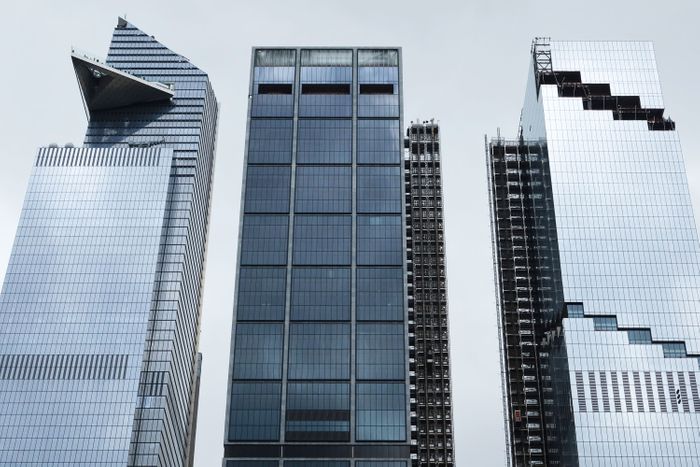
Jamie Dimon and Cardi B each think a recession is coming, with the former predicting a “hurricane … out there, down the road, coming our way.” (Cardi advised, “You gotta know about money to maintain it.”) But the news isn’t all bad: The billionaire developer Stephen Ross, whose Related Companies built Hudson Yards and the Vessel, predicts that any resulting desperation among workers will be really good for him personally.
“I think as you go into a recession and people fear that they might not have a job, that will bring people back to the office,” Ross told Bloomberg last week. “The employees will recognize as we go into a recession, or as things get a little tighter, that you have to do what it takes to keep your job and to earn a living.” Conveniently, doing what it takes means returning to rush-hour commutes, racing from meetings to day-care pickups, and $14 desk salads while filling up Ross’s various properties.
The office occupancy rate in New York City topped 40 percent earlier this month for the first time since the pandemic began, according to Kastle Systems, but only 8 percent of Manhattan workers were in the office five days a week in April. Work patterns are continuing to shift. A recent NYU and Columbia Business School analysis estimated that by 2029, the city’s office buildings would drop in value by 28 percent; a report from city comptroller Brad Lander’s office found that a severe downturn in market values could cause office property taxes to drop by $600 million. (In the beginning of 2021, you could hear the tumbleweeds blow across Hudson Yards.)
Ross’s sunny spin on a potential downturn has become something of a talking point among developers and commercial landlords. As the Commercial Observer reporter Rebecca Baird-Remba noted recently, the owner of the Empire State Building delivered a similar line to her last month.
As companies begin to cut back and the job market shows some signs of C-suite anxiety expressed as layoffs, corporate leaders are pointing out that employees may have less power to resist the trek to an office tower. Talking to CNBC last month, Johnny C. Taylor Jr., president and CEO of the Society for Human Resource Management, said something along the same lines as Ross: “The hybrid workforce is not going to go away, but the situation where employees refuse to come to the workplace at all is not likely to hold.”
The battle against the office has been a major development in the later pandemic, with workers from Apple to Google Maps to JPMorgan resisting mandates to return for a set number of hours each week. Ross is banking on a renewed sense of precarity to reset the balance of power. Will it be enough to break the junior bankers?





